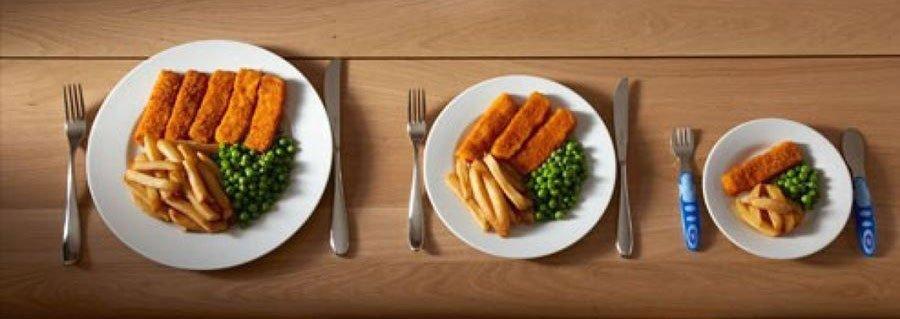DO you know that scientists have recently found that eating less leads to a healthier and longer life? And that eating less is exactly what the Prophet ﷺ recommended 14 centuries ago? Isn’t that amazing?!
Sometime ago I read about an interesting clinical trial that was underway at Washington University in Boston, called ‘Calerie’ (Comprehensive Assessment of Long-Term Effects of Reducing Intake of Energy). The study aimed to understand what happened to people who reduce their daily intake of calories by 25 percent for two years, in order to investigate “how (and if) a spartan diet affects the aging process and its associated diseases.”
There are basically two processes that cause aging:
- “Primary” or “intrinsic” aging, which refers to the wear and tear of body cells and tissues, and the collection of toxins in our cells as we grow older. Interestingly, this is a natural phenomenon that acts as a curb on the length of our life, and currently limits the maximal lifespan of humans to approximately 120 years.
- “Secondary aging” refers to those diseases and ailments that are increasingly prevalent as people grow older, like cancer, diabetes and cardiovascular disease.
Without these natural processes – or if these processes are substantially slowed down, which is what researchers aim to study during this trial – we might be able to live much longer, healthier lives with none of the physical effects of aging.
We read in the Qur’an that Prophet Nuh (Noah) (peace be upon him) lived among his people for “a thousand years less fifty years”, (Qur’an, 29: 14). In Qisas-ul-Anbiya (Stories of the Prophets) by Ibn Katheer, we read about the lifespan of several Prophets which were considerably longer than our current standards.
While we may never know the secret behind their longevity or be able to increase the length of our own lives (as this is a matter decreed by Allah, the knowledge of which is with Him alone); we do have the key to live a healthier, more productive life by following the guidance of the Prophet ﷺ.
The Prophet ﷺ said: “No human ever filled a vessel worse than the stomach. Sufficient for the son of Adam are a few morsels to keep his back straight. But if he cannot bear that, then one third for his food, one third for his drink and one third for his breath.” (Ahmad, At-Tirmidhi, An-Nasa’i, Ibn Majah – Hadith Sahih)
When Yuhanna Bin Masawaiyh (770 CE), the famous Assyrian physician who lived through the tenure of four caliphs in Baghdad, read this narration, he remarked, “If people only applied these words practically, they would avoid all diseases and maladies and the clinics and pharmacies would be idle.”
Nafi’ Bin Al-Harith Bin Kalada Al-Thaqafi (670 CE), the physician from Banu Thaqif who lived during the time of the Prophet ﷺ, said: “That which has destroyed mankind is the introduction of food on top of food before it has been digested.”
What is amazing is that this Prophetic guidance predates scientific studies that link caloric restriction to longevity and better health by 14 centuries!
 It is only recently that a number of research papers published in several medical journals have demonstrated that human subjects following calorie-restricted diets show a significant drop in risk factors for cardiovascular diseases and cancer.
It is only recently that a number of research papers published in several medical journals have demonstrated that human subjects following calorie-restricted diets show a significant drop in risk factors for cardiovascular diseases and cancer.
In an experiment at Cornell University in the mid-1930s, calorie restriction has been repeatedly shown to extend the lives of mice, rats and other animals. The New York Times reported in 2009 on an ongoing experiment at the University of Wisconsin on rhesus monkeys, which began in 1989, which shows that “monkeys on restricted diets are healthier and more vigorous and seem destined (at least at the moment) for a longer life”.
Besides the obvious physical benefits of eating less, there are several spiritual benefits that are confirmed by the people who practiced this Sunnah.
In Jami’ Al-Uloom wal-Hikam (Collection of Sciences and Wisdom), Ibn Rajab Al-Hanbali writes, “As for the spiritual benefits (of eating less): humility of the heart, strength of understanding, subduing of lower desires, lessening of personal opinions and anger, while overeating induces the opposite of all of these.”
Al-Hasan Al-Basri said: “O, son of Adam, eat with one third of your stomach and drink with one third and leave one third of your stomach to breathe so that you may think.” He also said, “The test of Adam (peace be upon him) was food and it is your test until the Last Day. Whoever takes control of his stomach gets control of all good deeds.” Once Al-Hasan offered some food to his companion who said, “I have eaten until I am no longer able to eat!” To which Al-Hasan said, “Subhan Allah! Does a Muslim eat until he is no longer able to eat?”
Sheikh-ul-Islam Ibn Taymiyyah said: “Those who eat sparingly of their food, enjoy it far better than those who indulge in excess, because when they become used to eating too much, they do not enjoy it nor can they quit, although it causes them diseases.”
The Prophet ﷺ once voiced his apprehension regarding the Muslim nation and said: “My greatest fear for you is the appetites of transgression with regard to your stomachs and your privates and the inclinations which lead astray.” (Ahmad)
May Allah enable us to follow “Khayral-Hady” (the best guidance), which saves us from afflictions in this world and the next.
[Also read: How Muslims Helped Ireland During Famine]
Limited free articles. Subscribe for full access.








 Dr. Bilal Philips
Dr. Bilal Philips